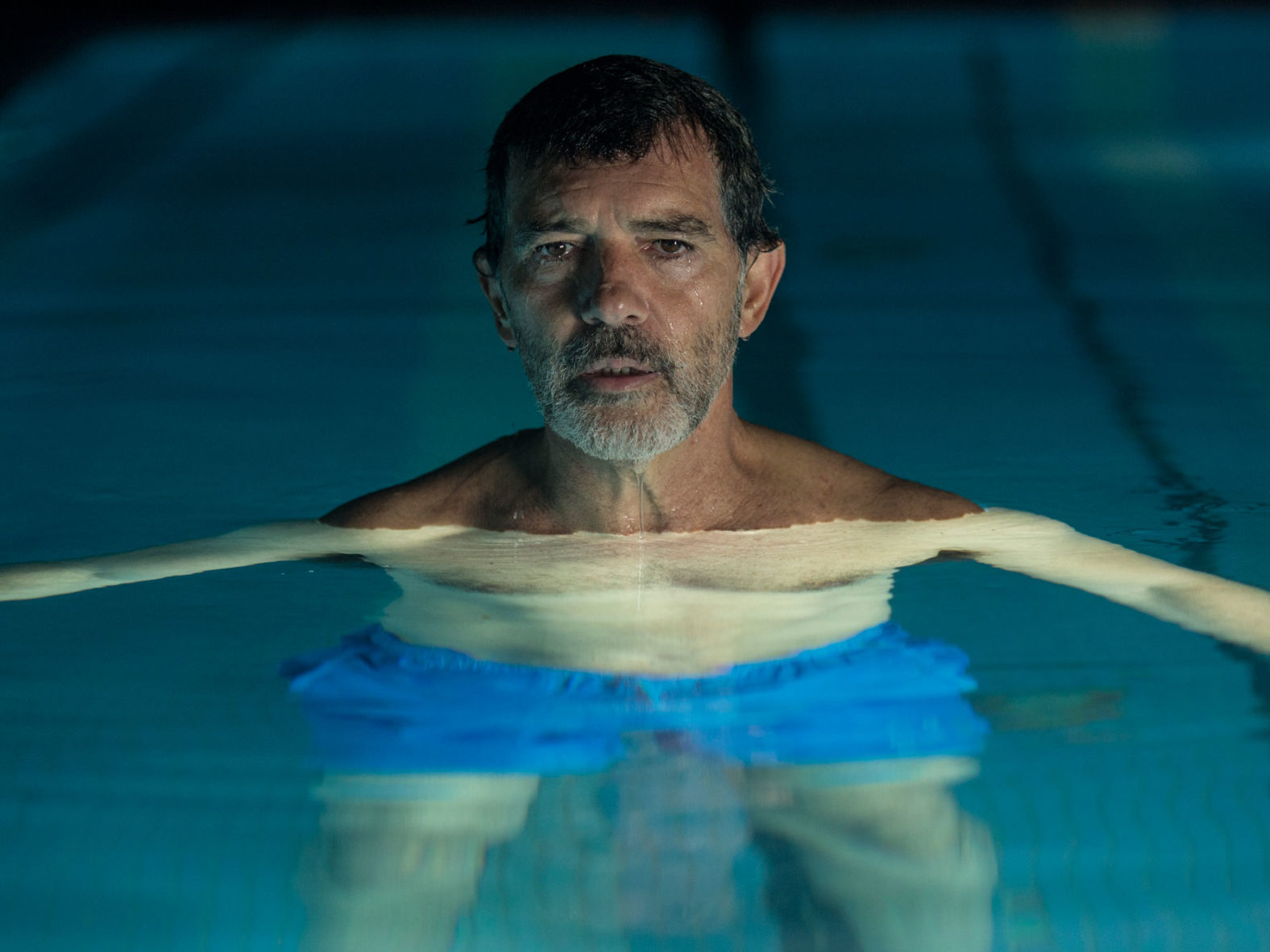A puff of heroin and all of Salvador Mallo’s ailments suddenly melt away. In Pedro Almodovar’s first foray into filmmaking since his 2016 woman-centric drama Julieta, the bittersweet masterpiece of Pain & Glory (Dolor y Gloria) is a beautiful exploration into the memories of a celebrated Spanish filmmaker struggling to set his imagination free again.
Thirty-two years after he released his seminal work Sabor, acclaimed director Salvador Mallo (played with pure magnetism by Antonio Banderas in what may be his finest work) is in an utter decline. He is frazzled, limping, and constantly laments that he is unable to do what he used to love. Despite not actively working for over a decade, Mallo fills his Madrid apartment with chic and contemporary furniture and art, brightly coloured and uniquely shaped, acquired with the wealth that comes from a lucrative career – a bold and chipper contrast to his general depression. In an opening monologue complete with b-grade animations of the human nervous system, brain scans and skeletal structures you might only see now inside dated science textbooks, he rattles off a long list of physical and mental aches that weave from back pain to migraines, asthma and sudden choking fits, painting a vivid picture of a body attacking itself.
Prompted by the restoration of his last work, Mallo seeks out his former lead actor Alberto (Asier Etxeandia) with the aim of reconciling before reluctantly attending a Q&A screening on their much-loved film. Their relationship is rocky, in large part due to creative conflicts developed during the filming of Sabor, and they quickly settle into a bizarre domesticity fed by hard drugs and niggling at old emotional sores that eventually culminates in Alberto needling Salvador’s most personal piece from the depths of his computer storage to be performed on a small local theatre stage. For the first time we get a detailed glimpse at the love and passion that was present in Salvador’s adult life as he battled to hold on to his first love and fell deeply into the outlet of film-making.
Amidst all of the turmoil and the drama of Salvador’s downward spiral, Almodovar takes us to the villages of Spain, namely the mildly primitive Paterna, where we are shown sprinklings of Salvador’s childhood. Nurtured by his mother Jacinta (played by Penelope Cruz with a hard warmth that can only come from a Latino woman), young Salvador (played by Asier Flores) is a bright and able young man who exhibits a natural intelligence for literacy and numeracy and a voice destined for church choirs. As the adult Salvador explains to his captive audience how these natural talents impressed the priests at his seminary school and resulted in a string of top grades with absolutely no additional effort, every former youth genius who crashed into adulthood with anxiety and a crippling lack of motivation could see themselves clearly represented on the screen. Salvador’s fear of completing works, sadness over his physical and mental limitations, and his internal desire to continue creating is deeply painful and relatable.
The brief glimpses into Salvador’s history every time he dips his toe into the heroin pool seems like a jagged, mis-matched storytelling device at first but soon finds its feet and feels both delicate and elegant. Compared with Mallo’s present-day narrative, there is a sense of calm within his memories that feels like wrapping your hands around a fresh coffee after walking in the brisk winter air. With each memory that Mallo’s subconscious unveils the lens over the adult Salvador gets cleaner and clearer.
We are able to see in Salvador a sense of vanity that few of us are capable of recognising in ourselves, a need to be acknowledged for our greatness while also wallowing in our self-pity; every response that he gives is designed to elicit a sympathetic response from those around him, whether his manager, his friends, or his mother. What will you do if you don’t make movies? “Live, I suppose…” This film, were it not acted with performative humour, would feel weird, heavy and stale. What Almodovar gives his audience is permission to laugh in the face of Salvador’s pain and revel in his glory, injecting a natural levity into an otherwise sad subject matter.
